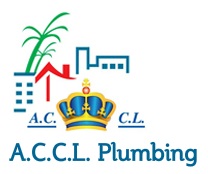Water temperature plays a significant role in plumbing systems, affecting everything from pipe durability to water quality. As a homeowner or plumber, understanding the effects of water temperature on plumbing is crucial for maintaining a safe, efficient, and long-lasting system. In this article, we’ll explore the impact of water temperature on plumbing and provide valuable insights for optimal system performance.
Effects of Water Temperature on Plumbing
1. Pipe Material: Water temperature can affect the durability and lifespan of pipes. For example, high temperatures can cause PVC pipes to degrade faster, while low temperatures can cause pipes to become brittle.
2. Water Expansion: Water expands when heated, which can lead to increased pressure in pipes. This can cause pipes to burst or fittings to loosen.
3. Corrosion: Water temperature can influence the rate of corrosion in pipes. Higher temperatures can accelerate corrosion, especially in pipes made of certain materials.
4. Scalability: Water temperature can affect the formation of mineral deposits, such as limescale, which can clog pipes and reduce water flow.
Optimal Water Temperatures for Plumbing
1. Residential Plumbing: The ideal water temperature for residential plumbing is between 40°F (4°C) and 140°F (60°C).
2. Commercial and Industrial Plumbing: The optimal water temperature for commercial and industrial plumbing systems can vary depending on the specific application and equipment used.
Consequences of Extreme Water Temperatures
1. Freezing Temperatures: Water can freeze in pipes, causing them to burst and leading to costly repairs.
2. High Temperatures: Excessive water temperatures can cause scalding, damage pipes, and increase energy consumption.
Tips for Managing Water Temperature in Plumbing
1. Insulate Pipes: Insulate pipes in unheated areas, such as garages or basements, to prevent freezing.
2. Use Temperature-Controlled Valves: Install temperature-controlled valves to regulate water temperature and prevent scalding.
3. Regular Maintenance: Regularly inspect and maintain pipes to prevent damage and ensure optimal system performance.
Conclusion
Water temperature has a significant impact on plumbing systems, affecting pipe durability, water quality, and system performance. By understanding the effects of water temperature and following best practices for managing water temperature, you can ensure a safe, efficient, and long-lasting plumbing system.

